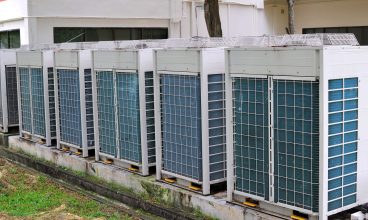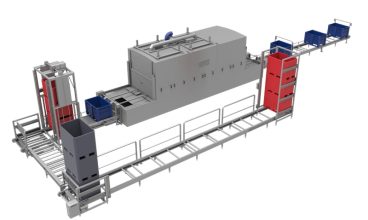What are an oxidation chamber and technical oxidation?
Oxidation devices are equipment that can be used in different industries to assist with various processes. An oxidation chamber, for example, is a device that uses an oxidizing agent such as ozone or chlorine dioxide to purify contaminated air streams. It works by passing the air through the chamber and exposing it to the oxidant, removing impurities from the air stream.
This process is known as “oxidation.”
What is an oxidation device?
An oxidation chamber, or Ozonator, is a device that uses an oxidizing agent such as ozone or chlorine dioxide to purify contaminated air streams. It works by passing the air through the chamber and exposing it to the oxidant, removing impurities from the air stream.
An oxidation process occurs when oxygen (O) molecules bind with other molecules. This process is called oxidation, which is a chemical reaction that occurs when an unstable molecule acquires electrons from another substance; this can occur naturally or artificially through oxidizers such as ozone and chlorine dioxide.
How does an oxidizer work?
An oxidizer works by passing the air through a chamber and exposing it to the oxidizing agent. This process allows the oxidant to remove impurities from the air stream, thus purifying the air. Common oxidizers used in oxidation devices include ozone (O) and chlorine dioxide (ClO).
Types of oxidation devices?
There are a few different types of oxidation devices that include the following:
– Wet Oxidation Chambers
Wet oxidation chambers are the most common type of oxidation devices and work by passing the air through a water bath which contains an oxidizing agent. This chamber is often used in wastewater treatment plants to break down organic matter.
– Dry Oxidation Chambers
Dry oxidation devices use a solid oxidant that sucks ash oxygen or ozone to purify the air stream. This type of chamber is often used in industrial applications where a clean and sterile environment is required.
– Technical Oxidation Chambers
Technical oxidation chambers are a particular type of dry oxidation device that uses a gaseous oxidant such as chlorine dioxide to purify the air stream. They are commonly used in the food and beverage industry to kill bacteria and pathogens.
Each chamber type has its benefits and drawbacks, which will be covered later in this article. But first, let’s take a look at what is meant by “technical oxidation.”

What is technical oxidation?
Technical oxidation, or simply “oxidation,” is a term used in various industries to describe different processes. In the context of air treatment, it refers to the use of an oxidizing agent such as ozone or chlorine dioxide to purify contaminated air streams. In fact, the term “technical oxidation” is often used interchangeably with other terms that describe air treatment processes such as wet or dry oxidization.
Technical oxidation can be performed in various devices, including ozone generators and chlorine dioxide chambers. These types of equipment are commonly used to purify the air stream in industrial settings like food processing plants or wastewater treatment facilities. They are also used in the medical and pharmaceutical industries to kill bacteria and pathogens.
So, now that you have a basic understanding of oxidation devices and technical oxidation let’s look at some of the benefits and drawbacks of each type.
What are some benefits of using an oxidation device?
Some benefits of using an oxidation device include the following:
– Purifies contaminated air streams
– Removes impurities such as bacteria, viruses, and VOCs
– Prevents the spread of contaminants
– Reduces the need for manual cleaning
– Reduces odours and fumes
What are some drawbacks of using an oxidation device?
Some drawbacks of using an oxidation device include the following:
– Very expensive to purchase and operate
– Runs on electricity, which requires a constant power source as well as additional costs for maintenance and repairs
– Can be difficult to maintain and requires regular cleaning
– Can produce hazardous byproducts if not operated correctly
Oxidation devices and how they can help you breathe easier?
There are many different types of oxidation devices on the market these days. It can be unclear to know which one is right for you. To help you choose the best machine for your needs, we have listed its benefits and drawbacks above.
Oxidation devices are necessary for any industry dealing with heat and combustion, such as manufacturing plants. The best way to find the perfect oxidation device is by considering what you need it for and how much money you want to spend on installation and maintenance costs in the long run.


